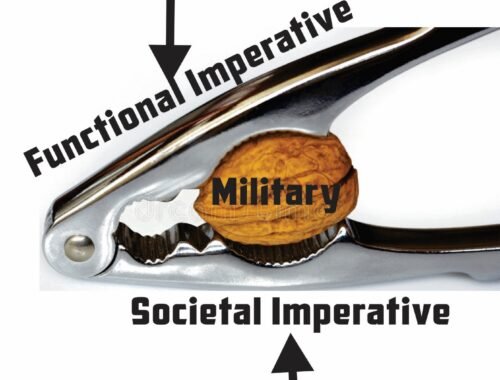
Faustian Bargain, Part 1
This is a three-part series on developing the concept of compassionate conservativism to develop effective policies and solutions that address the problems of poverty and its threat to sustainable liberty and prosperity. Both the left and the right entered Faustian bargains that use the poor as a means to further their own ends. This keeps the poor at least perceptually poor and easy to manipulate.
An agreement, bargain, or deal in which a person sacrifices or abandons moral, ethical, or spiritual
values in favor of wealth, power, or other benefits. A reference to the legend of Faust, who sold his soul to the devil for unlimited knowledge and power. The Free Dictionary
While reading Oliver Pötzsch’s The Master’s Apprentice: A Retelling of the Faust Legend, I came across a scene that triggered an interesting chain of thought. Faust was desperately trying to save his daughter from a sacrifice and had an epiphany about the power of love. Now this is not the power of love Huey Lewis and the News sang about. It is the true transcendental love that is more akin to agape or at least philia than eros (Greek terms for love). In this scene, the devil says that Faust must either complete his bargain with the devil or they will sacrifice his daughter. Now Pötzsch takes some liberties with Goethe’s telling of the story, but his version is interesting and is based on some historical aspects of the legend.
The first thing this scene triggered in my mind was a statement by Joseph Campbell in a series of cassette tapes of a seminar he gave. While discussing the scene where God tells Abram to sacrifice his son, Campbell asks, how do you distinguish a divine command from an infernal invitation (or words to that effect)? Now I could wax on about Gnosticism and mythology, but in the interests of staying topic, I will not. However, that question has stayed with me since I heard him ask it.
When reading the scene, I had the answer. It lies in Immanuel Kant’s Categorical Imperative. One of Kant’s three versions says people are ends in themselves and not means to an end. An infernal invitation uses people as a means to an end. A divine one does not. The same is true in virtually every relationship between people. To use another person as a means to an end is evil. Now some evils may be worse than others, but it is still evil none the less.
Now let us turn back to the second element of the scene from Faust, love. The connection I made there was back to an experience when I was a brigade commander in Bosnia. Towards the end of our rotation, I had a commander’s call. During tactics and other topics, I brought up the concept of love and suggested that a leader must love the organization and the people he or she leads. I suspect some commanders confirmed their opinion that I was nutty.
But over the years, I have watched organizations and people the organizations thought were leaders struggle to lead. Most of the people in leadership positions did not love their organizations or the people, and it showed. They were managers. Many were simply looking to feather their resumes and advance up the career ladder.
I suspect the same is true in government, perhaps even more so. How many politicians really love the country versus loving the power their positions give them? But I do not think this was always the case. Despite Charles Beard’s theory that the founders rebelled from England based on their own class economic interests, these men loved what they birthed with their blood and sacrifice. Many of the signers of the Declaration of Independence lost everything. Yet, by the 1820s, Gordon S. Wood, in The Radicalism of the American Revolution, says most of the surviving founders were disillusioned and skeptical of America’s future.
Perhaps Beard’s theory applies to more to current politicians than it does to the founders. And perhaps many of them, on both sides of the political divide, made a Faustian bargain for power. The plight of America’s poor is a good example.
Reportedly, President Johnson said regarding his Great Society, “I’ll have those n***s voting Democratic for the next 200 years.” Robert Kessler reported this statement in his book Inside the White House. The source is supposedly a steward on Air Force One. Whether or not the statement is correct, it is in keeping with Johnson’s mien. If true, it shows the Democrats entered a Faustian bargain for African American support at the polls.
The left masquerades as a compassionate, and some of them genuinely are and want to help the poor. The political power elites, however, are more concerned with their power and privilege and see poor as an increasingly large voting block to keep them in power as long as they get enough to satisfy them.
The right is just as culpable. They rail against welfare and socialism and the wasted billions—trillions—of dollars spent on social welfare programs. But they have no solutions to address the poor. Or they state that a rising tide lifts all boats and the poor in America are still far better off than most of the world’s population. They have their own Faustian Bargain: we build the economy and grow wealth and let the left claim the poor.
While they may have a point, they are missing the bigger picture in several dimensions:
- Poverty is relative and perceptual. This is the “wealth gap” the left rails against. Even if a person is living better than most of the world, what he or she sees are those in their own country and how they compare to others in the country.
- Poverty is unstable. The poor can vote their interests either at the ballot or on the streets. Letting the problems fester breeds instability.
- With huge deficits, the country can no longer pay for programs that not only do not work but may make the problems even worse. Look at the growth in children born to single mothers (see Part 2) and host of other indicators and they show worsening conditions since the inception of the Great Society.
The right can no longer simply say the programs do not work and are a waste. Conservatives need to develop and implement solutions that work and are sustainable. These solutions must address culture, education, and opportunity. George H. W. Bush (Bush I) danced around this concept with a Thousand Points of Light and George W. Bush (Bush II) with compassionate conservatism. They were good sound bites, but the Republican Party forgot about the points of light when Bush I lost the reelection and the compassion when Bush II left office.
Perhaps they were originally simply sound bites for a reelection campaign, but if the Republicans want to govern, they need to transform them from sound bites to implementable policy.
Right now, both parties are treating the poor as a means to an end and seem to have forgotten the people are their own ends. There seems to be little love in politics.
Part 2 addresses this transformation.





